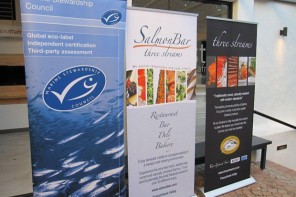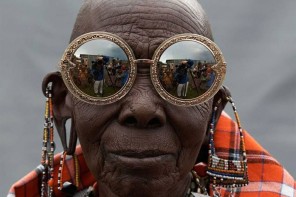Written by: Wilma den Hartigh
A newly established local dairy company has taken the lead in milk processing, and boasts the smallest carbon footprint of any dairy in the southern hemisphere.
The idea to establish a dairy with green credentials came about in 2010, when a group of Eastern Cape dairy farmers decided that they wanted to create a facility that could add value to locally produced milk. The farmers wanted to maintain the high quality of their products, but also had a vision to process milk using more eco-friendly methods.
The Coega Dairy initially invested R50-million (US$7.3-million) in advanced ultra-high temperature (UHT) processing equipment that makes it possible to produce UHT milk, also known as long life milk, more efficiently.
Coega Dairy CEO Dr Hennie Kleynhans said that no other dairy in the region or on the continent has invested in the advanced technology, known as OneStep, and internationally, he is only aware of a dairy in Spain that is using it.
According to Kleynhans, this is because the technology is new in the market and besides being very expensive to install, would require dairies to undergo a complete overhaul of existing infrastructure.
However, given the cost squeeze on dairy producers in South Africa, Coega Dairy deemed the investment worthwhile.
Local trade magazine DairyConnect reports that South African milk producers face tough competition from countries where milk can be produced more competitively or where farmers receive subsidies. In South Africa, producers also have to contend with increasing input costs and low producer prices.
The founders of the Coega Dairy realised that the technology could help them overcome some of these challenges: it allows for more eco-friendly milk production while also performing exceptionally on cost savings.
Investing in the best green technology
Coega Dairy’s marketing director Marlize Smit said that the new UHT processing plant is significantly more efficient than conventional UHT equipment used in other South African plants.
The Coega plant makes use of OneStep technology, which reduces the need for various steps during production. This means that milk can be processed faster, using fewer resources, at a lower cost.
Energy and water consumption is considerably reduced, while the end products, which also include butter and custards, still maintain their high quality and have enhanced taste profiles.
“The new plant is one of the most modern UHT plants, and one of the top green dairy plants in the world,” Smit said.
The processing unit uses half as much energy, water and chemicals and generates 50% less effluent, of which 65% is recycled. The technology cuts carbon dioxide emissions by 40%, which results in a lower carbon footprint compared to world average values.
According to Kleynhans, ordinary dairy plants use three litres of water to produce one litre of milk. In comparison, the OneStep technology makes it possible to use only 300ml of water per litre of milk. He noted that some dairies can use less water using traditional technology, but this is difficult as it requires extreme efficiency.
Greening the dairy industry
The dairy industry struggles with eco-friendly operations. Production plants require daily cleaning, and this uses large quantities of water and chemicals. Cleaning chemicals are expensive and once used, are released in the effluent, which could harm the environment.
“Many dairies do treat their water, but this is still not efficient,” said Kleynhans.
Unlike traditional dairy plants, the OneStep technology design only requires cleaning every 60 hours, using fewer chemicals. This means less water and fewer chemicals, but an increase in production time, as less downtime has to be scheduled for cleaning.
Establishing a green dairy and sourcing milk from farmers using eco-friendly farming methods is a step in the right direction for the local dairy industry. For the consumer, it also shows that farmers and the rest of the value chain know how important it is to produce food and beverages more sustainably.
The switch to green technology anticipates changing consumer demands.
“Eastern Cape dairy farmers are being pro-active. Consumers expect green products these days. It isn’t an option anymore,” said Smit.
The farmers are also working towards greening the entire value chain, from the farm to the consumer.
Smit said that the Coega Dairy will source milk predominantly from pasture fed cows raised in the province’s unpolluted surroundings.
Coega Dairy products will be packaged in paper cartons, of which the majority can be reclaimed and recycled to make new paper products. The milk will also not be transported over long distances, which reduces the logistics and transport carbon emissions.
Representative ownership
At the moment 13 commercial milk farmers own the Coega Dairy, but next year the ownership structure of the company will change to ensure a benefit for all participants in the value chain.
By 2012, dairy farm workers, black farmers and farm managers and factory workers will own 40% of the company’s shares.
Additionally, said Kleynhans, the dairy will have a further positive economic impact on the Eastern Cape by creating 350 direct and 750 indirect jobs.
Towards the end of 2011 when the plant becomes operational, milk will be sourced from black owned and managed dairy farms, many of which are highly successful.
“These farmers milk over 25 000 litres of milk daily,” said Kleynhans. “Some also own close to 2 000 cows and on a properly managed farm, farmers can milk 15 to 20 litres of milk per cow per day.”
Ownership of the company will be expanded further to include joint ventures with Amadlelo, a black empowerment agri-business concern, with the purpose of training black farm managers through shared milk production.
Construction underway
The Coega Dairy is currently under construction at the Coega Industrial Development Zone (IDZ) just outside Port Elizabeth in the Eastern Cape. It will be fully operational in October this year.
Kleynhans said that with the infrastructure available, the road network and a reliable source of power at the Coega IDZ, it was the most suitable site for the new dairy.
Extensive environmental impact assessments and relocation of vegetation, animals and insects were also undertaken before construction started.
“Vegetation, animals, insects and even spiders, snakes and rats were relocated to a nearby site,” he said.
Next year the Coega Dairy plans to install a second plant at the site. This will be valued at R192-million ($28.6-million) and will include value-adding equipment.
The liveeco team







